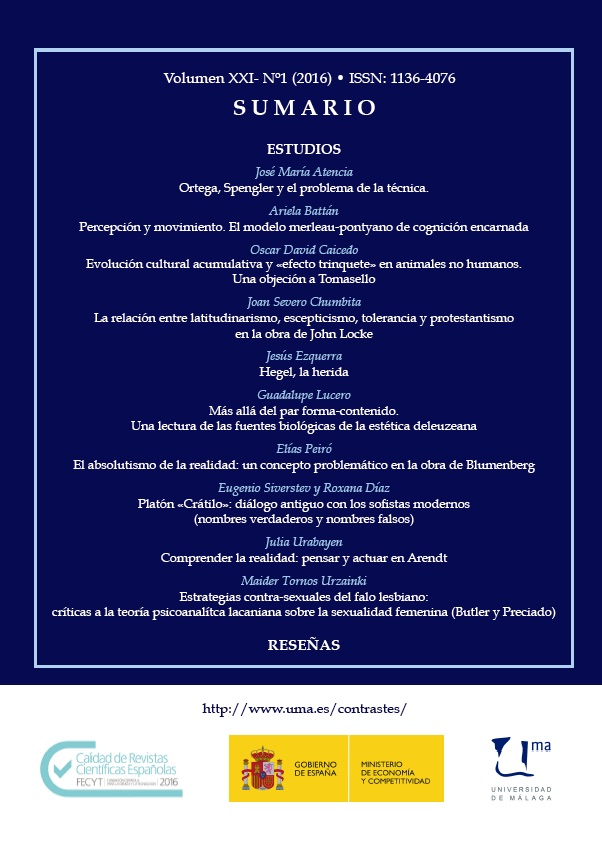Perception and movement. The Merleau-Ponty’smodel of embodied cognition
DOI:
https://doi.org/10.24310/Contrastescontrastes.v21i1.2306Keywords:
Phenomenology, Body, Ontological Turn, Epistemological TurnAbstract
This article addresses Merleau-Ponty ?s conception of embodied cognition in two moments of his work, in the context of Phenomenology of Perception and The Visible and the Invisible. The central aim of this article consists in describing the epistemological consequences of the ontological turn given by merleau-pontian later thought. The study of the close relationship between perception and movement would shed light on the model of embodied cognition proposed by Merleau-Ponty and could contribute to understand the central role of the body in cognition.Downloads
Metrics
Publication Facts
Reviewer profiles N/A
Author statements
Indexed in
-
—
- Academic society
- N/A
- Publisher
- Universidad de Málaga
Downloads
Published
How to Cite
Issue
Section
License
This journal provides immediate free access to its content under the principle of making research freely available to the public. All content published in Contrastes. Revista Internacional de Filosofía, are subject to the Creative Commons Attribution-NonCommercial-ShareAlike 4.0 license whose full text can be found at <http://creativecommons.org/licenses/by-nc-sa/4.0>
It is the responsibility of the authors to obtain the necessary permissions of the images that are subject to copyright.
Authors whose contributions are accepted for publication in this journal will retain the non-exclusive right to use their contributions for academic, research and educational purposes, including self-archiving or repository in open access repositories of any kind.
The electronic edition of this magazine is edited by the Editorial Service of the University of Malaga (Uma Editorial), being necessary to cite the origin in any partial or total reproduction.










5.png)
